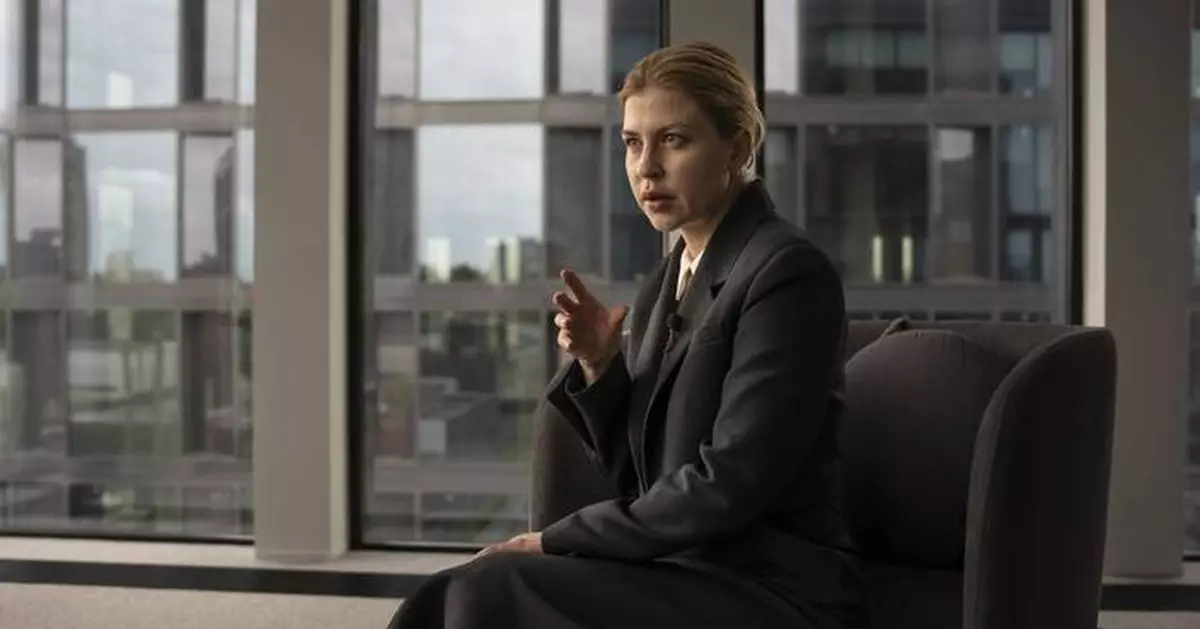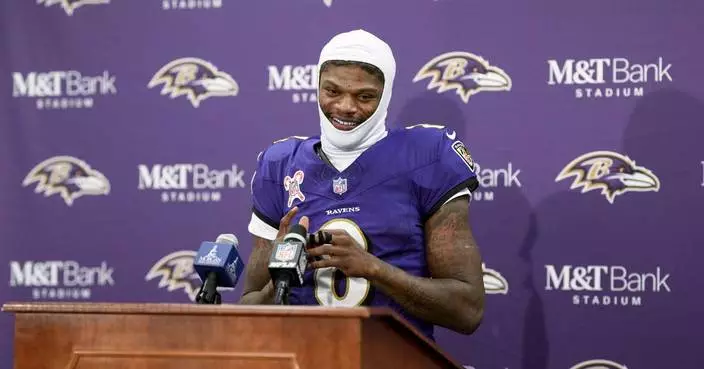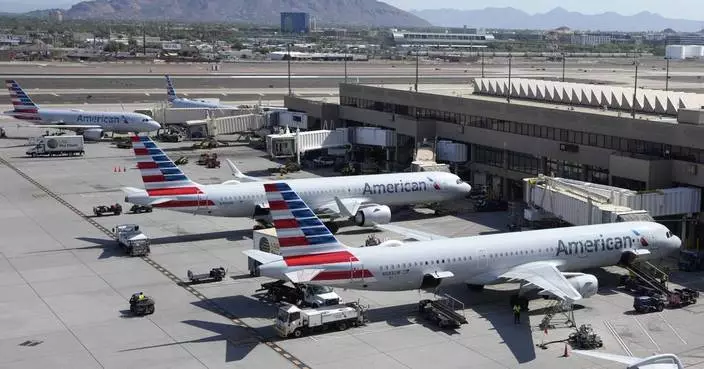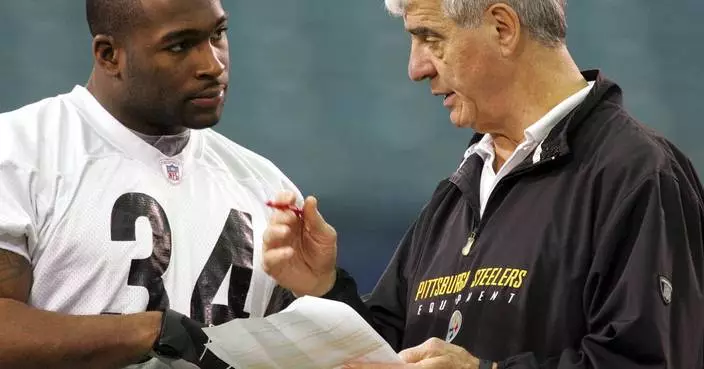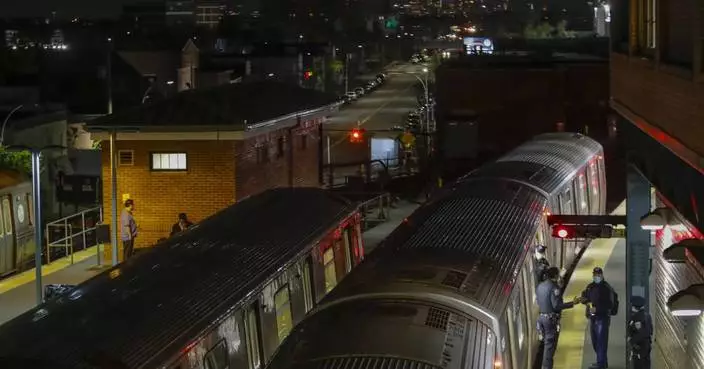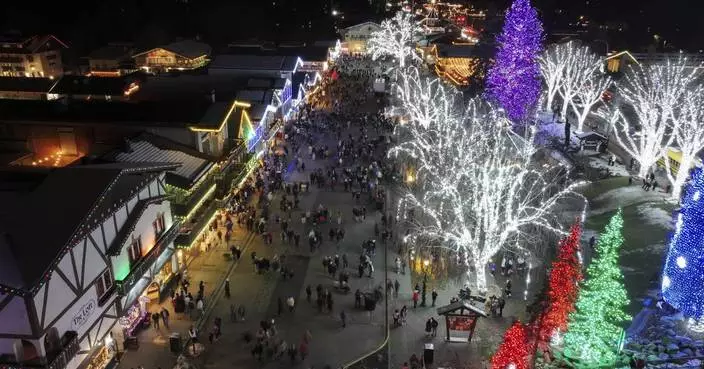KYIV, Ukraine (AP) — Ukraine’s top official for Europe says the war-torn country is on an “irreversible” course of Western integration after the European Union agreed to formally start entry negotiations this week.
The decision to launch accession talks this week is a “big day” for her country, Olga Stefanishyna, the deputy prime minister for European and Euro-Atlantic integration, said.
“This is the utmost will of the Ukrainian people. And this is the irreversibility. And you’ve seen Ukrainians stand up for their choice,” Stefanishyna said, speaking in Kyiv Sunday.
It was her first interview since being appointed chief negotiator for EU accession.
EU member countries agreed Friday to start entry talks with Ukraine and Moldova – overcoming vocal opposition from Hungary which takes over the EU’s rotating presidency on July 1. The process of joining varies for each country but could take years. Turkey started its accession talks almost two decades ago and is still waiting for full membership.
Stefanishyna will head the opening of the accession talks in Luxembourg Tuesday, joined by several top government officials. Ukrainian President Volodymyr Zelenskyy is expected to give a speech at the launch ceremony, but Stefanishyna did not elaborate whether he would do so in person or online.
Zelenskyy described Friday’s decision as a “historic step,” adding in an online post: “Generations of our people are realizing their European dream. Ukraine is returning to Europe.
A survey of opinion polling by the European Parliament earlier this year suggested that EU citizens broadly back Ukraine’s membership bid but are less supportive of fast-tracking the process.
Ukraine, Stefanishyna said, was not seeking special treatment.
“Ukraine is moving fast,” she said, “without skipping any elements of the process (and) without asking (for) any discount.”
Russia has used economic pressure and ultimately military force to try and reverse the aspirations of its former Soviet neighbor to join Western alliances it regards as hostile.
Deadly protests a decade ago to demand that the government stick to a pledge to forge closer ties with the EU put the country on a collision course with Russia.
“It’s a big day for everybody,” said Stefanishyna, who frequently showed emotion while describing the integration process. “It has been around two years since Ukraine applied for membership. The war is still raging on, but the accession is starting right now.”
Stefanishyna, a 38-year-old lawyer who has worked in civil service and government positions since her early twenties, will lead Ukraine’s 35-member delegation for negotiations with the EU.
In 2019, Ukraine changed its constitution to include those aspirations and formally applied to join the EU on Feb. 28, 2022 – five days after Russia launched its full-scale invasion.
Bordering EU members Poland, Slovakia, Hungary and Romania, Ukraine would overtake France to become the largest member of the bloc if it joined, shifting its center of gravity further eastward.
Together with Moldova, it’s in a long line with other candidates – Albania, Bosnia and Herzegovina, Georgia, Montenegro, North Macedonia, Serbia and Turkey – some with membership aspirations spanning decades.
Ukraine is hoping to join by 2030.
While praised for making progress since its application, Ukraine must carry out dozens of institutional and legal reforms required for membership. The daunting list is led by steps to combat corruption, and includes broad reforms to public administration, the judiciary, and market rules.
More than 1000 people in Ukraine are already involved in the accession process which will proceed without a summer break.
“The next half a year will be crucial for our key negotiators,” she said, adding that Ukraine needs to come up with a clear reform roadmap.
Follow AP’s coverage of the war in Ukraine at https://apnews.com/hub/russia-ukraine
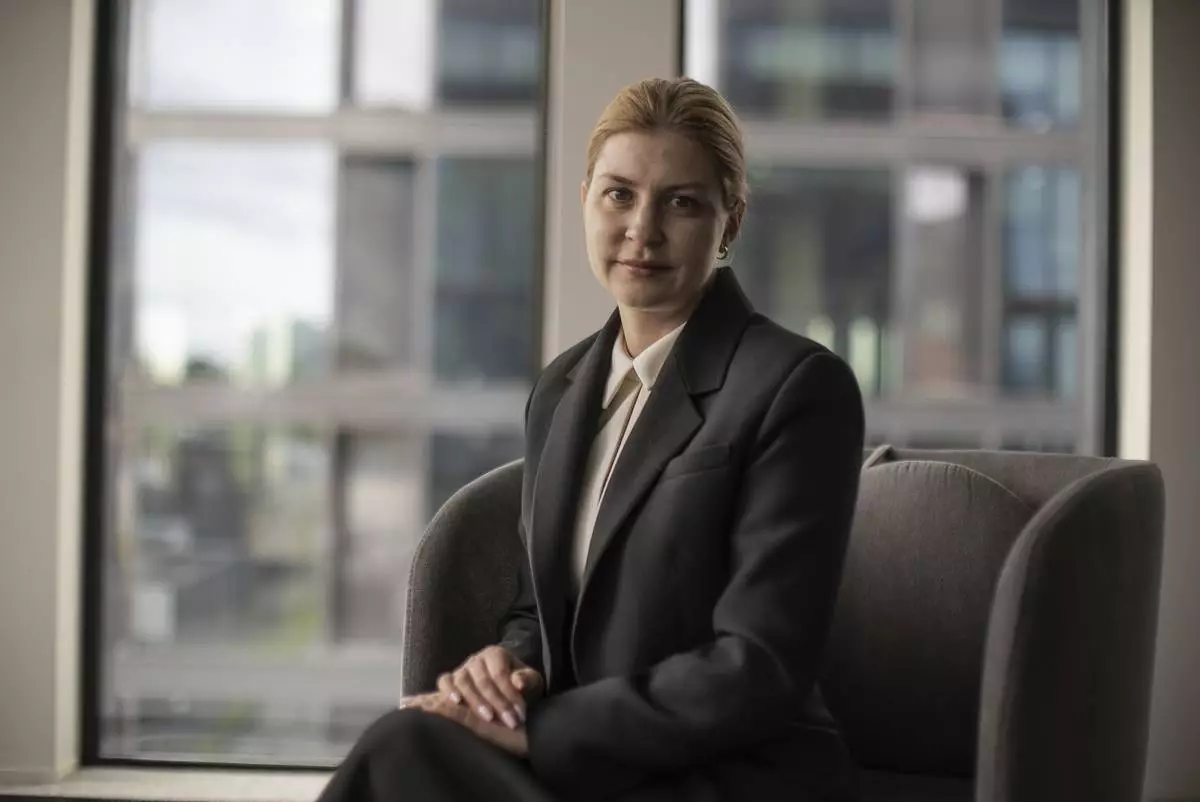
Olga Stefanishyna, Ukraine's deputy prime minister, poses for a picture during an interview with The Associated Press in Kyiv, Ukraine, Sunday, June 23, 2024. Ukraine’s top official for Europe, Stefanishyna, says the war-torn country is on an “irreversible” course of Western integration after the European Union agreed to formally start entry negotiations this week. (AP Photo/Alex Babenko)
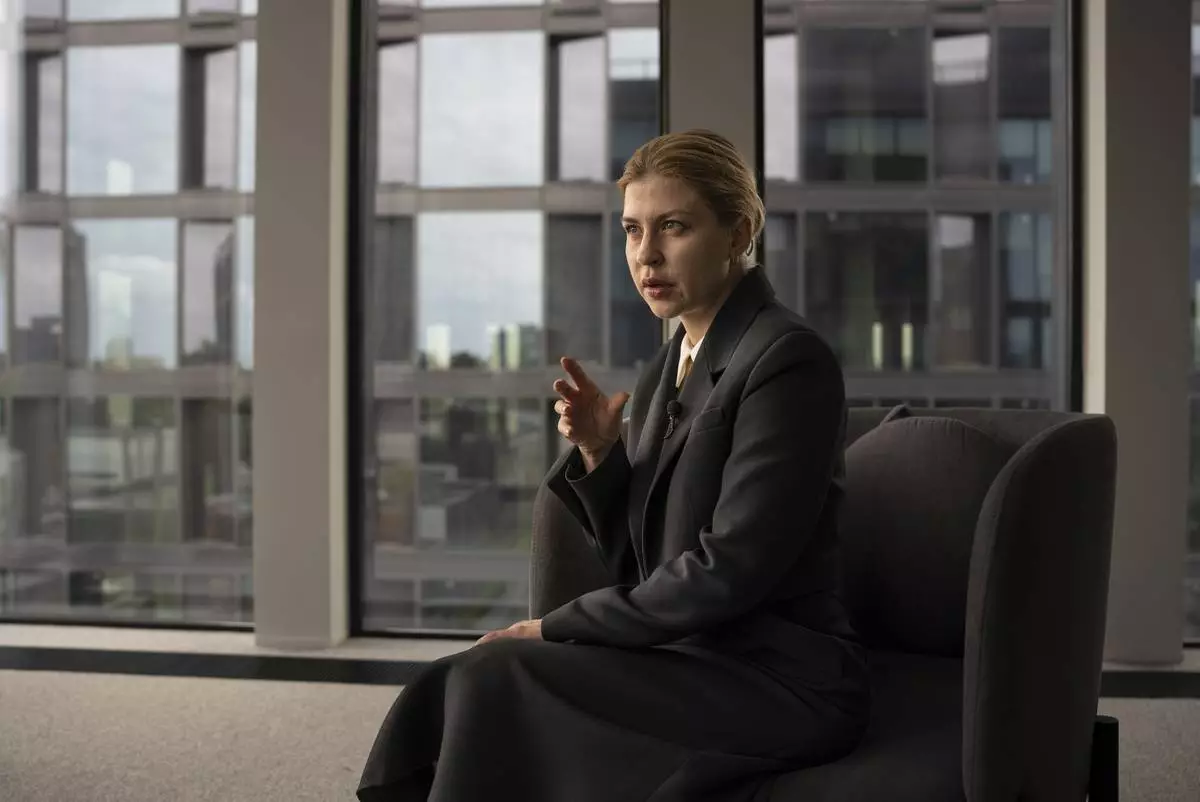
Olga Stefanishyna, Ukraine's deputy prime minister, speaks during an interview with The Associated Press in Kyiv, Ukraine, Sunday, June 23, 2024. Ukraine’s top official for Europe, Stefanishyna, says the war-torn country is on an “irreversible” course of Western integration after the European Union agreed to formally start entry negotiations this week. (AP Photo/Alex Babenko)
NEW YORK (AP) — The man accused of fatally setting a woman on fire inside a New York City subway train used his shirt to fan the flames, causing her to become engulfed in the blaze, a prosecutor said Tuesday.
Sebastian Zapeta, 33, who federal immigration officials said is a Guatemalan citizen who entered the U.S. illegally, made his first court appearance and was arraigned in Brooklyn criminal court.
He appeared briefly before a judge and wore a white jumpsuit over a weathered black hooded sweatshirt. He did not speak. He will remain jailed ahead of his next court date on Friday.
The apparently random attack occurred Sunday morning on a stationary F train at the Coney Island station in Brooklyn. Police said Tuesday that identification of the victim was still “pending at this time.”
Authorities say Zapeta approached the woman, who was sitting motionless in the train car and may have been sleeping, and used a lighter to set her clothing on fire. Zapeta then used his shirt to fan the flames, leading to her becoming engulfed in the fire, Assistant District Attorney Ari Rottenberg said on Tuesday.
Zapeta then sat at a bench on the subway platform and watched, according to police.
Rottenberg added that under interrogation Zapeta said he didn’t know what happened, noting that he consumes alcohol. But he alleged that Zapeta identified himself to interrogators in images related to the attack.
Video posted to social media appeared to show the woman standing inside the train ablaze as some people look on from the platform, and at least one officer walks by. NYPD Chief of Transit Joseph Gulotta said Sunday that several officers had responded to the fire and one stayed to keep the crime scene “the way it’s supposed to be" while the others went to get fire extinguishers and transit workers.
They were eventually able to douse the fire, but “unfortunately, it was too late,” Police Commissioner Jessica Tisch said — the woman was pronounced dead at the scene.
Zapeta was taken into custody Sunday afternoon while riding a train on the same subway line after police got a tip from some teenagers who recognized him from images circulated by the police.
A Brooklyn address for Zapeta released by police matches a shelter that provides housing and substance abuse support. The shelter did not immediately respond to a request for comment.
Federal immigration officials said Zapeta had been previously deported in 2018 but at some point reentered the U.S. illegally.
In a statement, Brooklyn District Attorney Eric Gonzalez called the attack a “gruesome and senseless act of violence against a vulnerable woman” that would be “met with the most serious consequences.”
The crime — and the graphic video of it that ricocheted across social media — deepened a growing sense of unease among some New Yorkers about the safety of the subway system in a city where many residents take the subway multiple times each day.
Overall, according to authorities, crime is down in the transit system this year when compared to last year — major felonies declined 6% between January and November of this year and in 2023, data compiled by the Metropolitan Transportation Authority show. But murders are up, with nine killings this year through November compared to five in the same period last year.
Earlier this month, a Manhattan jury acquitted Daniel Penny in the death of an agitated subway rider that the former Marine placed in a chokehold last year. The case became a flashpoint in ongoing debates over safety, homelessness and mental illness on the system.
Policing the subway is also difficult, given the vast network of trains constantly moving between the system’s 472 stations, with each stop containing multiple entry points and, in many stations, multiple floors and platforms.
On Sunday, police at the station where the woman burned to death were patrolling a different area and responded after seeing and smelling smoke, authorities said.
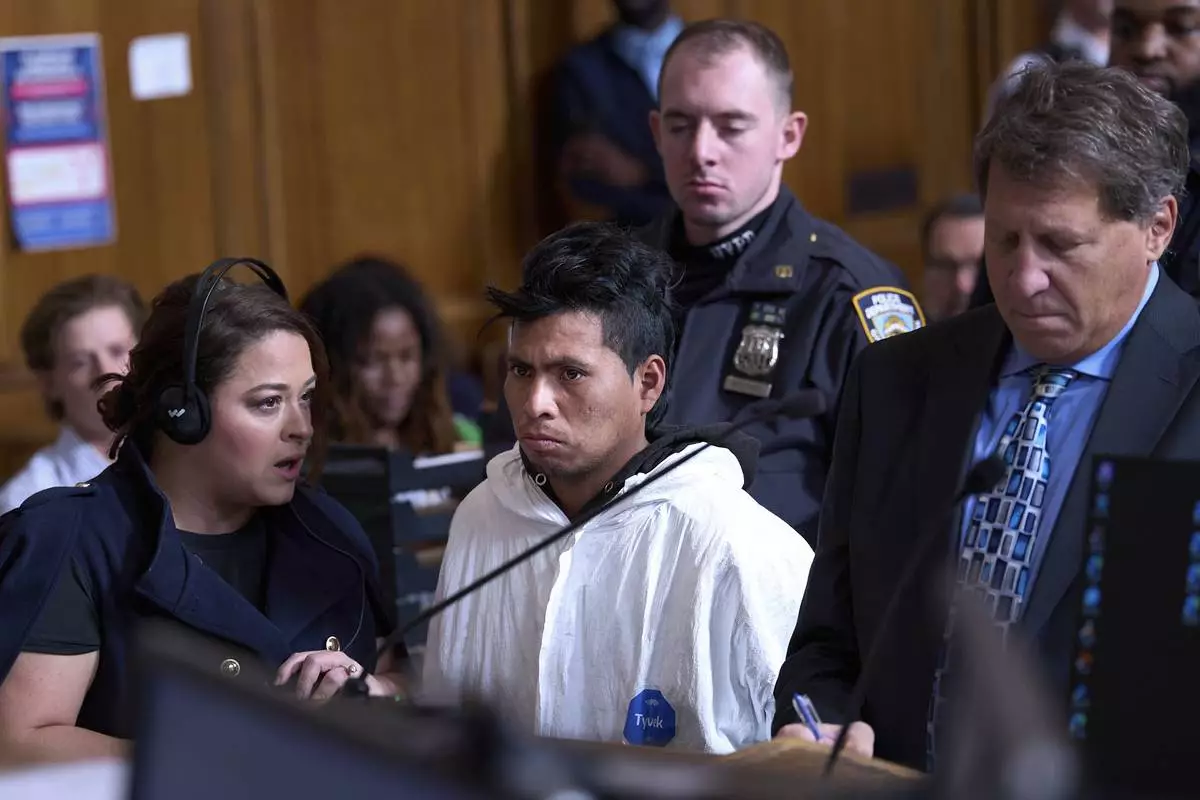
Sebastian Zapeta, accused of setting a woman on fire inside a subway train, appears in court in New York, on Tuesday, Dec. 24, 2024. (Curtis Means/Pool Photo via AP)
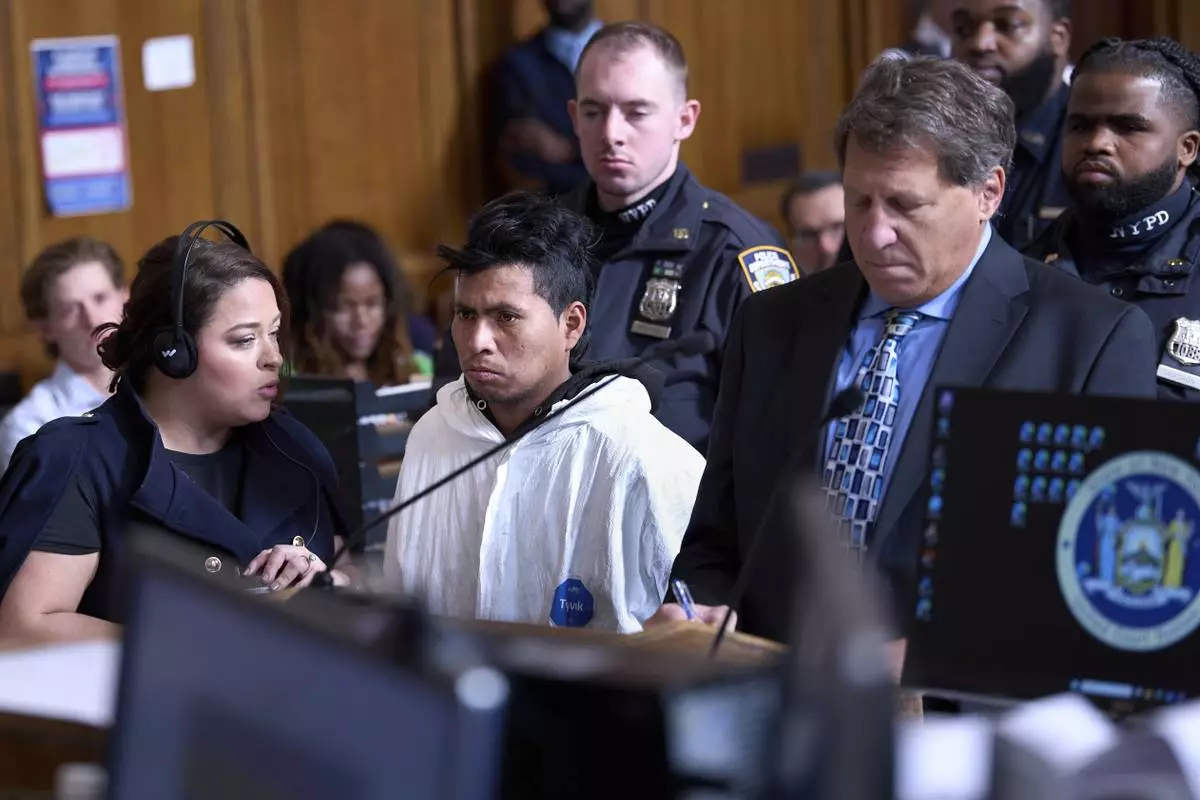
Sebastian Zapeta, 2nd left, accused of setting a woman on fire inside a New York City subway train, appears in court, Tuesday, Dec. 24, 2024, in New York. (AP Photo/Curtis Means via Pool)
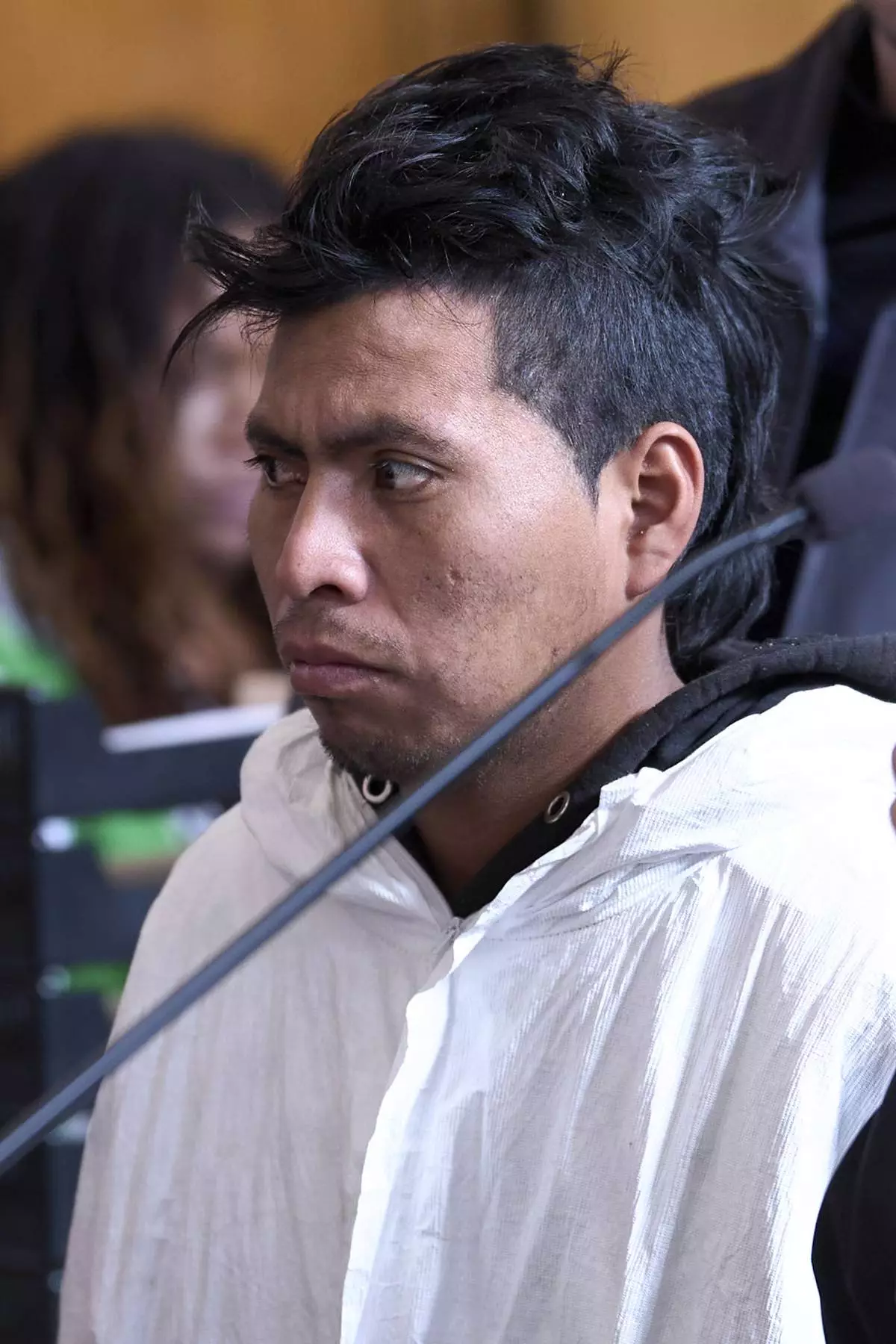
Sebastian Zapeta, accused of setting a woman on fire inside a subway train, appears in court in New York, on Tuesday, Dec. 24, 2024. (Curtis Means/Pool Photo via AP)
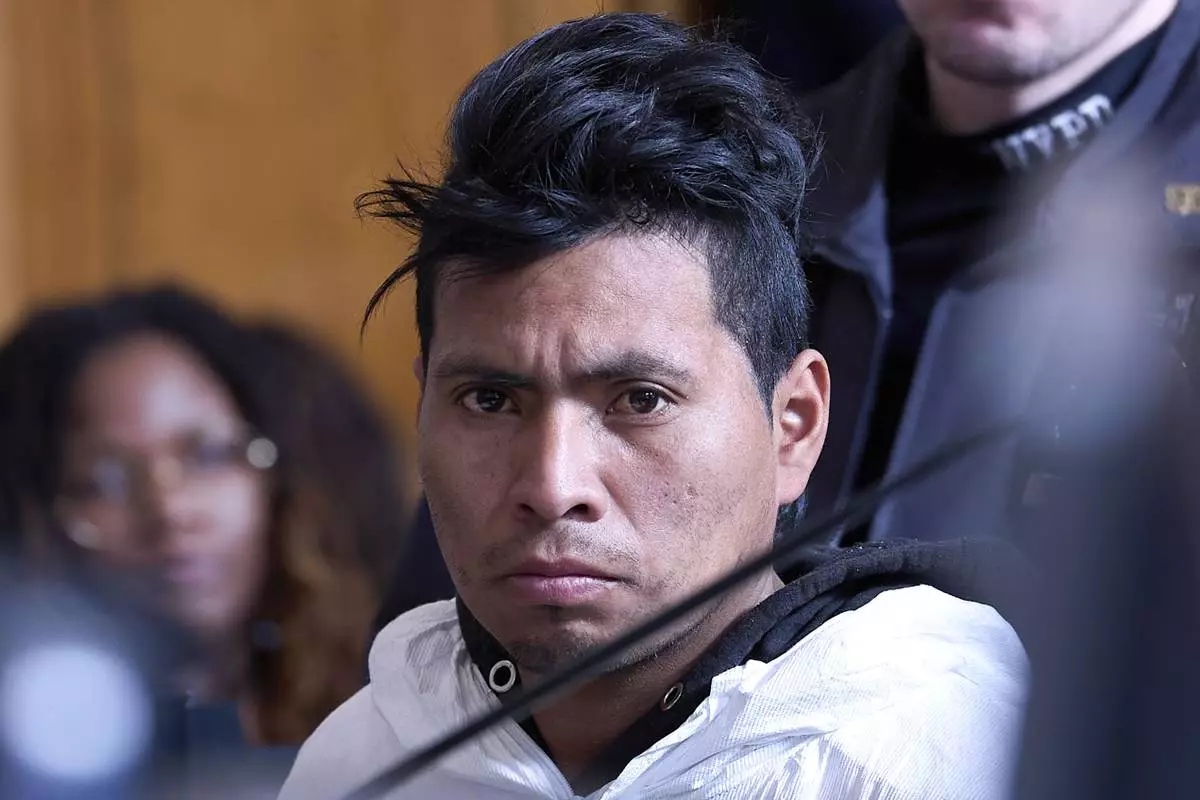
Sebastian Zapeta, accused of setting a woman on fire inside a New York City subway train, appears in court, Tuesday, Dec. 24, 2024, in New York. (AP Photo/Curtis Means via Pool)
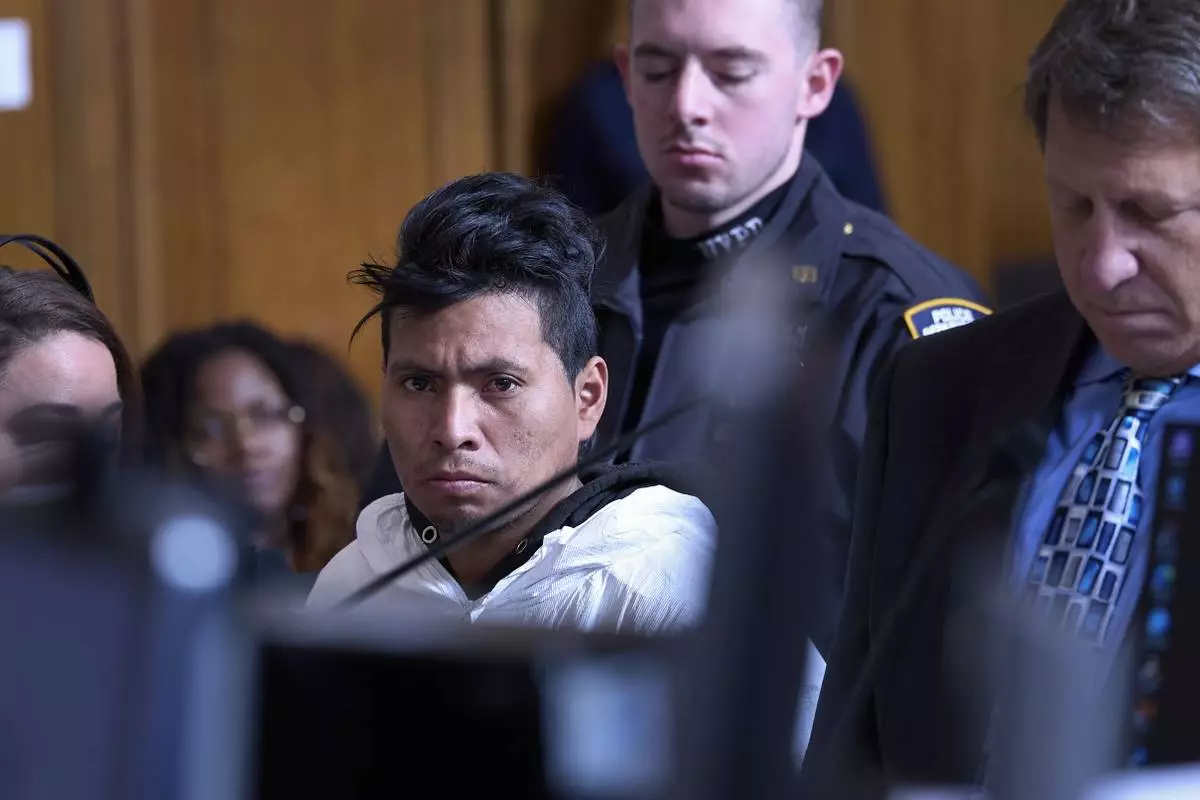
Sebastian Zapeta, accused of setting a woman on fire inside a New York City subway train, appears in court, Tuesday, Dec. 24, 2024, in New York. (AP Photo/Curtis Means via Pool)
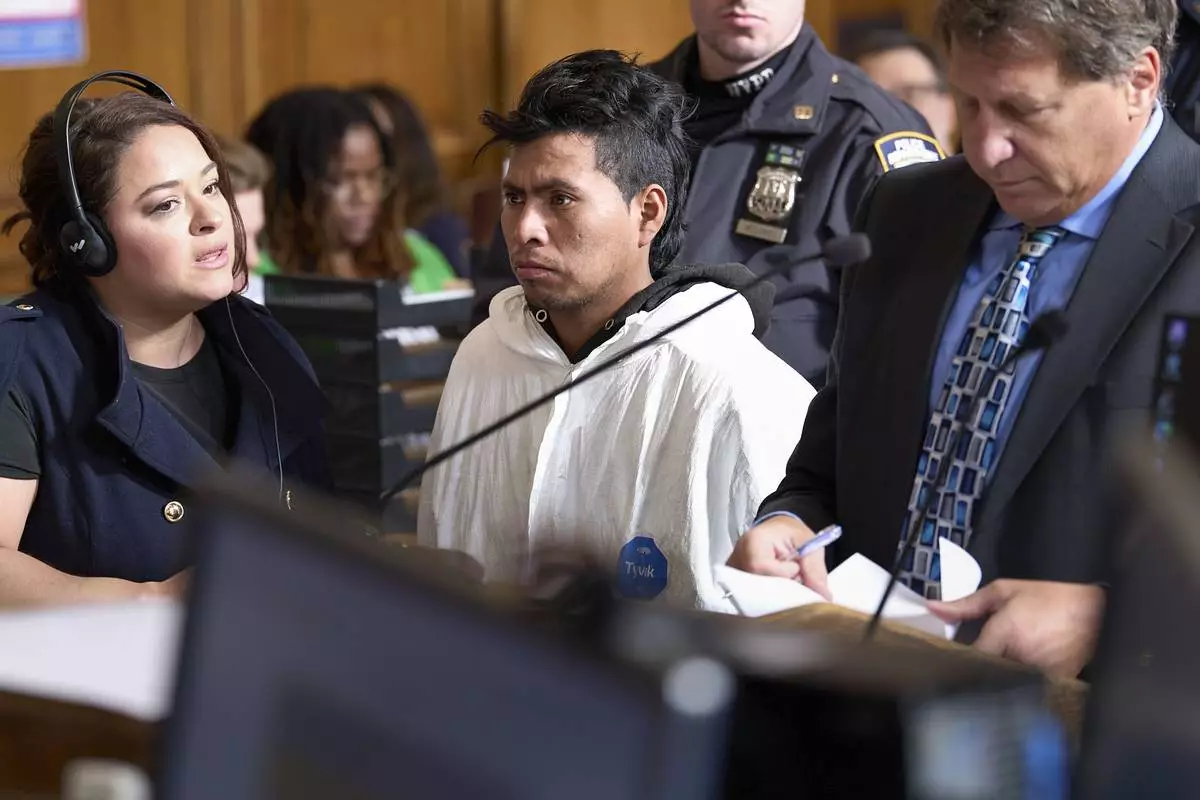
Sebastian Zapeta, accused of setting a woman on fire inside a New York City subway train, appears in court, Tuesday, Dec. 24, 2024, in New York. (AP Photo/Curtis Means via Pool)
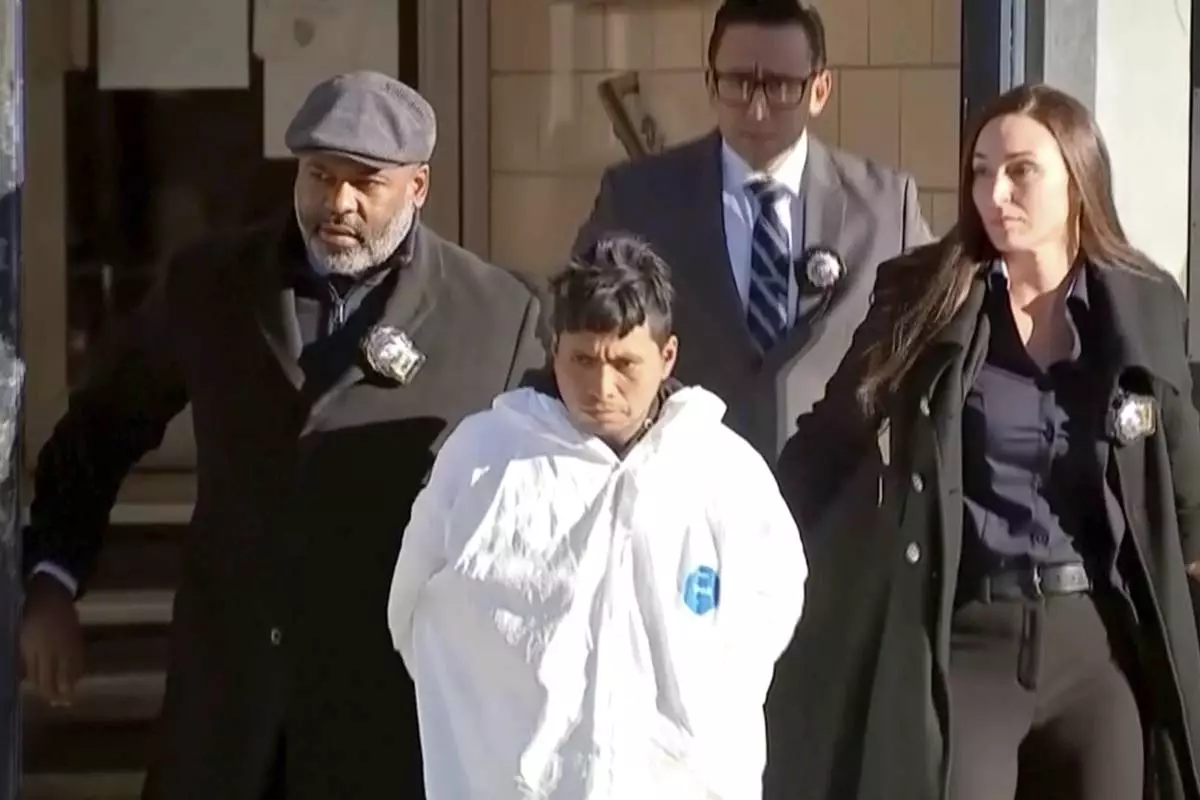
A suspect, identified by police as Sebastian Zapeta, is facing murder and arson charges in New York City for allegedly setting a woman on fire inside a subway train and then watching her die after she was engulfed in flames, police said Monday, Dec. 23, 2024. (WABC-TV via AP)




